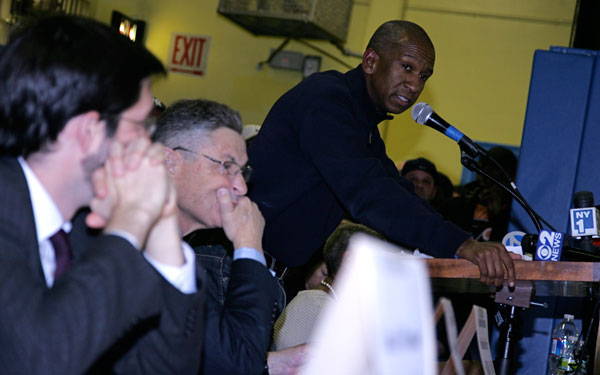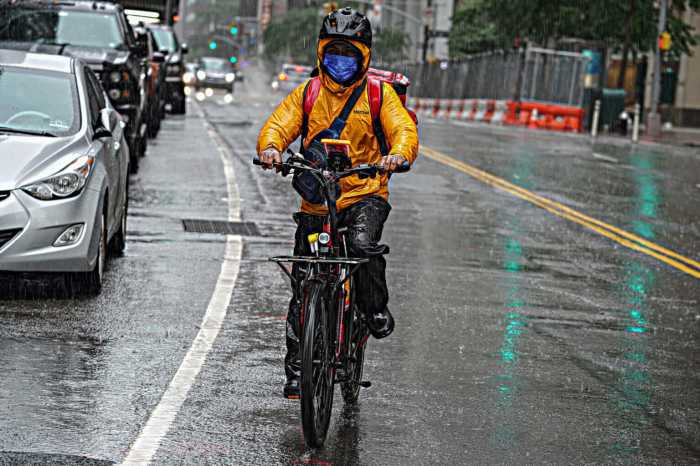
Photo by Sam Spokony
BY SAM SPOKONY| A year after Hurricane Sandy, Knickerbocker Village residents are still waiting for the rent rebates they were promised by the development’s management.
Tenants of the 12-building, 1,600-unit, Lower East Side affordable housing complex spent weeks without electricity or hot water following the storm. Last November, a representative of AREA Property Partners, the management company, assured tenants that “not a penny of rent will be paid for the days on which [residents] didn’t have essential services.”
But this week, management confirmed that none of that money has yet been paid out.
“We’re still trying to make it happen,” said Edwin Maltzman, the building’s controller.
Knickerbocker Village is a Mitchell-Lama development, so although it is run and maintained by AREA, its cash flow is controlled by the state’s Division of Housing and Community Renewal.
Maltzman said that management has been working alongside D.H.C.R. in an attempt to fund rent rebates through insurance claims, but acknowledged that it’s still a work in progress.
Meanwhile, Bob Wilson, a longtime tenant leader who has lived at Knickerbocker Village since the 1940s, said he believes the fight for rent rebates was unfeasible from the start.
Typically when D.H.C.R. approves rent rebates for a Mitchell-Lama complex, those deductions must be balanced out later by rent increases in order to balance the development’s cash flow. If that ends up being the case at Knickerbocker Village, the process would basically be self-defeating.
“That’s the whole problem,” Wilson said. “They haven’t gotten the insurance companies to cover it, and if they can’t do that, then the money for rebates would eventually have to come out of the pockets of tenants.”
Wilson said management should reach out to residents and explain the cash flow situation and the difficulty of securing rent rebates.
“[Management] would be helping themselves out if they did that,” said Wilson, “because every time they walk outside, there are residents demanding the rebates.”
Meanwhile, the elected officials who joined last year to push for the rebates — including Assembly Speaker Sheldon Silver, Councilmember Margaret Chin, state Senator Daniel Squadron and Borough President Scott Stringer — are still pushing to make sure that any rebates are not paid for through later rent increases.
“The residents of Knickerbocker Village should not be charged rent for the weeks they endured in their homes without essential services,” said Chin, in a statement released Tuesday. “I encourage management companies to do the right thing and honor their commitment to provide rent abatements for the residents who went without — without forcing tenants to shoulder the costs.”
In a statement also released Tuesday, Silver alluded to allocations of federal funding for building repairs, while also driving the same point home regarding rebates.
“Since the storm struck, I have made it a top priority to work with the city to ensure that Knickerbocker receives the resources it needs to repair and rebuild,” Silver said in his statement. “I also secured a promise from the owner of Knickerbocker that tenants would receive rent rebates for the time they were without essential services and that the cost of those rebates would not be passed on to the tenants. I expect that promise to be kept.”
But Maltzman’s response was tentative when this newspaper asked if he believes it would actually be possible to fund rebates without eventual rent increases.
“We’ll have to see about that,” he said.
In other news regarding the development’s post-Sandy recovery, the city’s Department of Housing Preservation and Development announced on Wednesday that Knickerbocker Village is now going to receive $1.46 million for building repairs. That money — which is separate from the issue of rent rebates — will be taken from federal funding and specifically allocated through the city’s Build it Back initiative.

































